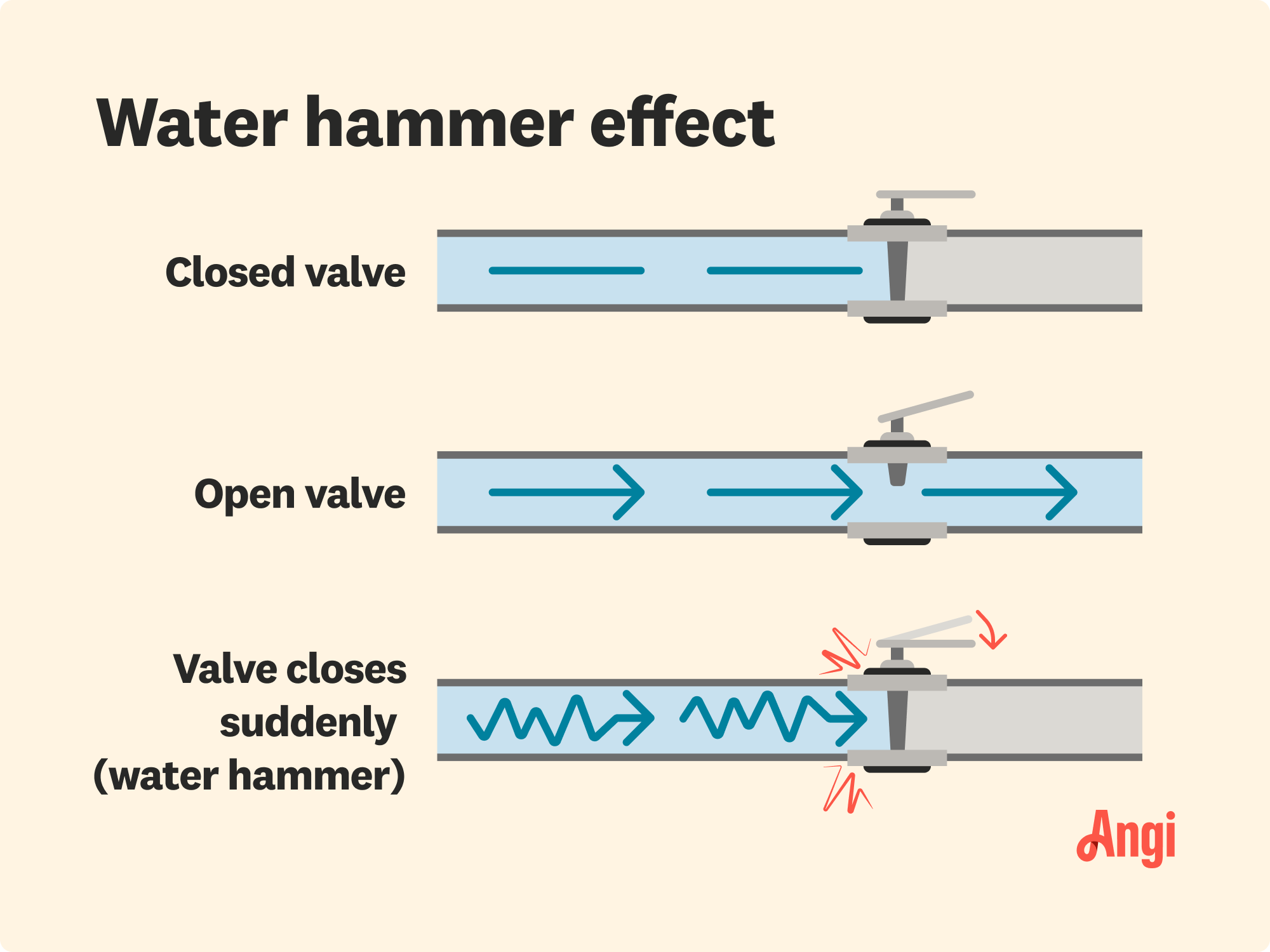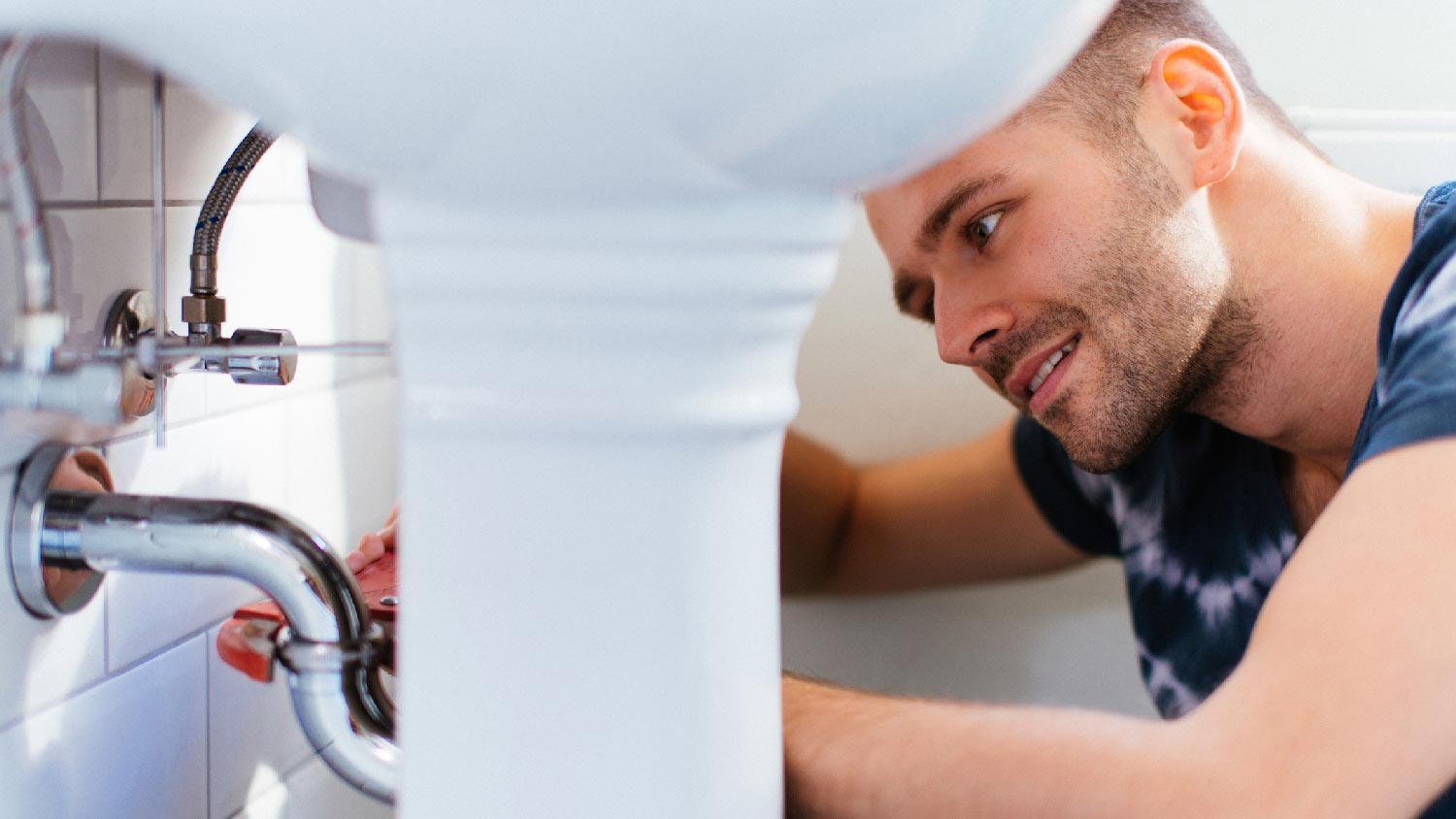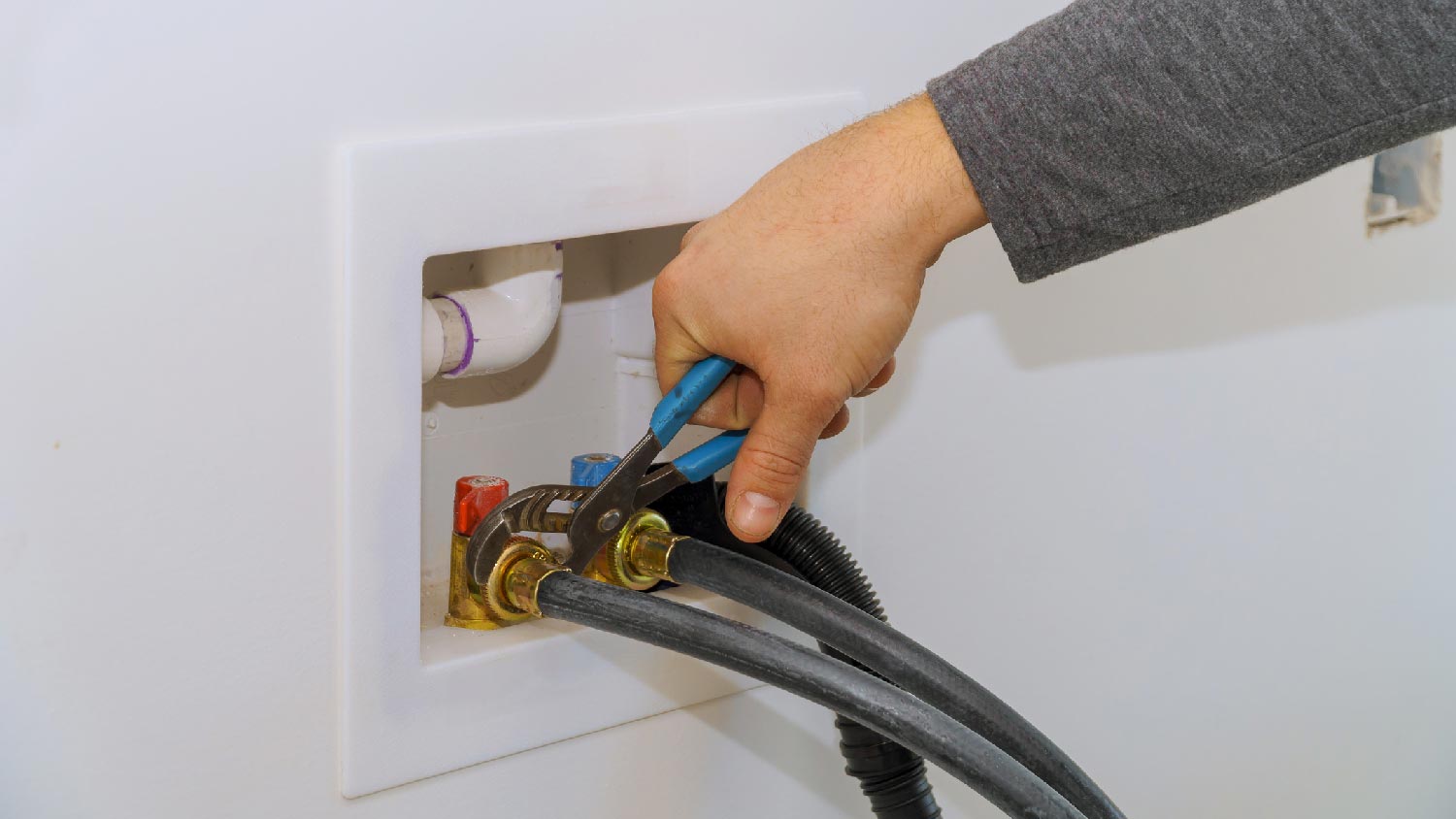
The cost to replace cast iron pipes depends on many factors, like size and accessibility. Use this guide to get a rough idea of how much you’ll spend.
Some hammers are less handy than others


Water hammer is also known as hydraulic shock.
It is caused by a pressure surge from water changing directions.
When the water shifts, it creates a loud banging sound that makes the pipes move.
There are several causes of water hammer, including loose pipes.
What’s all that racket? While houses make all sorts of strange sounds all of the time, ones coming from your plumbing system should be cause for concern. Water hammer is one sound to pay close attention to, as it could indicate a deeper issue with your pipes or even that brand-new dishwasher.
Also known as a hydraulic shock, a water hammer is a wave or pressure surge that occurs when fluid in motion is forced to change directions. The surge causes a loud banging sound that causes pipes to move and hit their adjacent frames.
When pipes are not adequately supported, the banging can intensify. In addition, the water hammer sound could get worse if the valves in your home plumbing are worn out or beginning to wear out.
While the sound of a water hammer can be annoying, that’s not the main reason to have this issue brought to the attention of a local plumber. A water hammer can indicate that there is or could soon be damage in your pipes.


The loud sound from a water hammer can come from a number of different plumbing problems. The best way to understand the core issue is to hire a plumber for a thorough inspection.
Pipes that have not been secured correctly or have become insecure over time could be the source of water hammer. When pipes are not installed well, a mild shockwave can cause enormous banging sounds. Make sure to have your pipes checked and securely fitted, including the pipes that might be hidden away, such as under floorboards and in cupboards.
Did you just buy and install a fancy new washing machine? Some appliances have solenoid valves, which control the water supply to appliances that use water. These valves are electronically operated and are used to instantly stop water flow into the appliance. When this happens too quickly, the water changes direction abruptly, creating a shock wave and a loud banging sound.
Damaged or worn-out stop valves are another common cause of water hammer. When stop valves have loose gland packing or worn washers, a water hammer will send shock waves through the valve handle and loose jumper.
If you live somewhere with hard water, the air chambers of your water system can get clogged with minerals such as calcium and magnesium. When the air chambers are blocked, they won’t be able to absorb the pressure in the plumbing system and as a result, you could hear a water hammer bang.
When water flows into your tank, the valve float rocks up and down, repeatedly closing and opening the valve. This activity causes a wave system that echoes along the pipes, creating the water hammer sound. Plastic tanks are more susceptible to this, but they can be reinforced with a metal plate to stop them from moving.

Water hammer causes a loud, often startling sound—one that shouldn’t be ignored. It usually indicates a deeper problem that needs to be dealt with. It’s always best to address any underlying issues with the help of a trusted local plumber. To prevent water hammer from happening again, follow these tips.
Make sure that all your pipes are secured to their surroundings with sturdy fixings. You can add pipe straps to add support, though it’s best to consult with a plumber when choosing the best material for your pipes—some metals can chemically react with one another, leading to corrosion.
Installing air-relief valves at the high points throughout a piping system can allow trapped air to properly escape.
Air chambers are short pipes with air-filled chambers that cushion shock waves. You can install these into your piping system to reduce the size of the shock waves downstream of any valve. Note that you will need to drain the air chambers of water every few months.
From average costs to expert advice, get all the answers you need to get your job done.

The cost to replace cast iron pipes depends on many factors, like size and accessibility. Use this guide to get a rough idea of how much you’ll spend.

Here's a look at how much you can expect to pay to replumb your mobile home with new pipes that meet all local code requirements and environmental regulations.

Emergency plumbers cost between 1.5 and 3 times as much as a typical plumber. Get specifics for your plumbing issue and city in our guide.

Touchless faucets offer benefits like saving water, avoiding germs, and simplifying cleanup. Learn the top benefits of hands-free faucets and decide whether to switch.

Follow this guide to learn how to install a kitchen sink drain, from shutting off the water supply to lowering the drain outlet and connecting the P-trap.

Discover grey water system cost details to learn about installation, maintenance, and ways to save on your home’s grey water system.